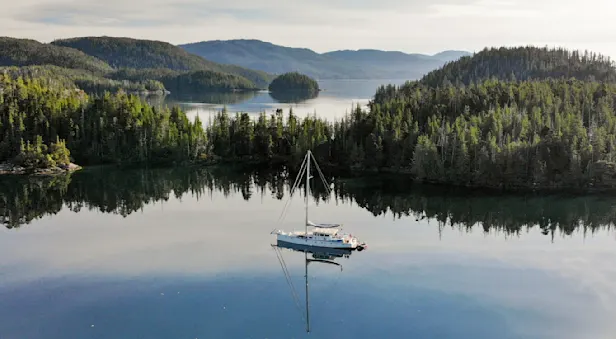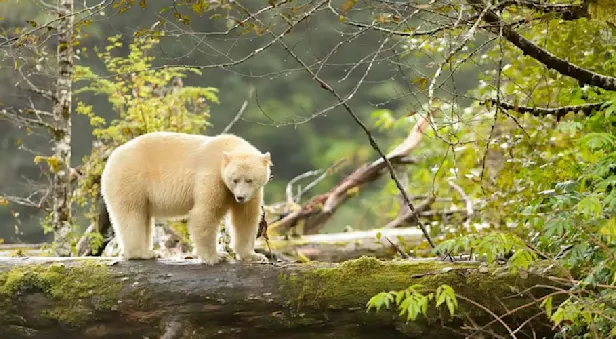Know Before You Go
Orca | Haida Gwaii Wildlife Guide
Orcas, also known as killer whales, are not whales at all. They are the largest members of the dolphin family. Their distinctive black-and-white color pattern makes them very easy to identify. There are two distinct groupings of orcas that are distinguished by their diets and travel patterns.
Northern resident orcas feed on fish. They got their name not because they stay in a specific area all the time, but because they travel predictable migration routes following salmon runs. Their matriarchal communities display strong, lifelong bonds between members and each smaller pod has a distinct acoustic dialect that helps them recognize each other even at a distance. These dialects are also convenient for researchers who can determine which pod is nearby without even needing to see them through the use of hydrophones. They can also tell how closely related two pods are by identifying how many similar calls they share.
Transient, or Bigg’s, orcas eat marine mammals like seals, sea lions and small whales and dolphins. They live in smaller pods than the residents, usually no more than 2–6 individuals, and these groupings are more fluid—members might leave and join another pod for a while. They cover a much wider range than residents, and they can be found from southern California to the Aleutian Islands in Alaska. Bigg’s orcas all share a similar dialect because of their fluid groupings and the fact that they are quieter than residents to avoid alerting their mammalian prey.
These two populations do not interbreed or even socialize with each other even though they are genetically similar enough to produce viable offspring.
Look for Orcas on These British Columbia Adventures

Haida Gwaii: Islands at the Edge of the World
Discover an archipelago of wonder off the coast of British Columbia—explore wild shorelines, ancient rainforest and 12,000 years of Haida culture on an intimate sailboat adventure in the marine wilderness.


Great Bear Rainforest: In Search of Spirit Bears, Grizzlies & Whales
Discover British Columbia at its wildest, in search of the elusive white Spirit Bear in the remote valleys of western Canada's Coast Range. Offshore, scout for humpback whales and orcas in emerald fjords.
























